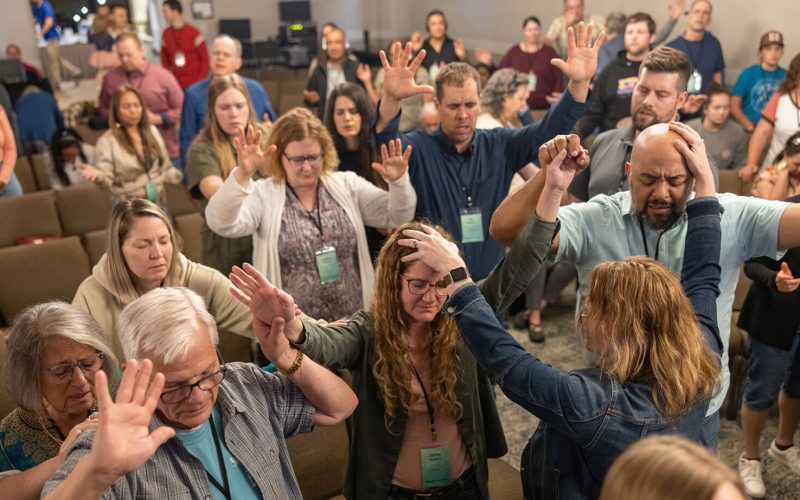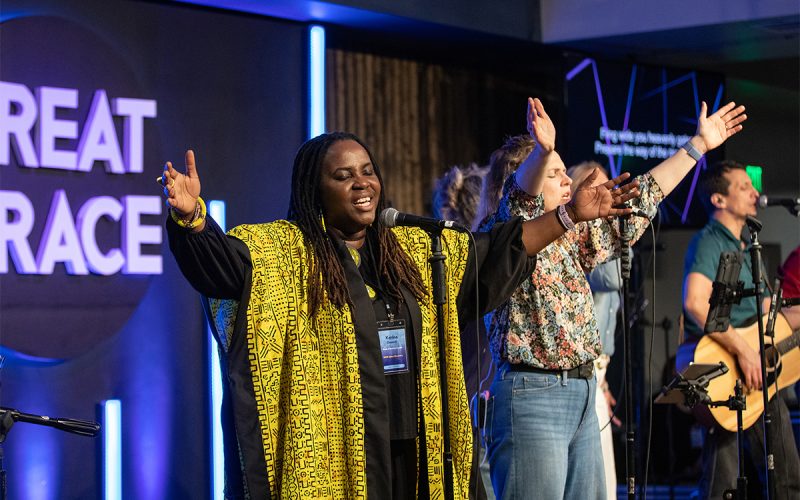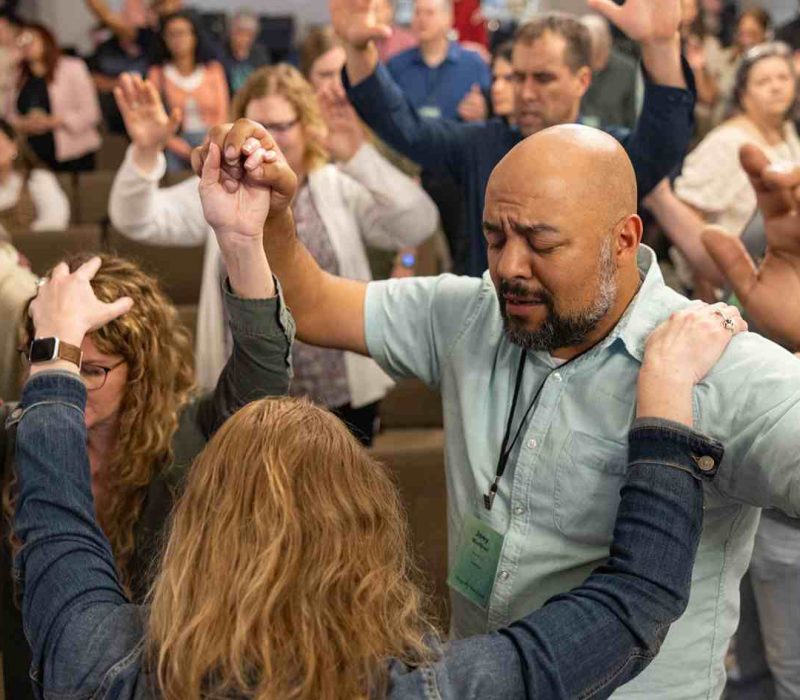By Larry Kreider
What is the difference between a community church, a megachurch and a microchurch network?
A community church (a church of approximately 50-1,000) and megachurch (generally a church of over 1,000) function within traditional church structure. They meet in church buildings every Sunday morning and may or may not have small groups meeting in homes during the week. The community church reaches out to its local community and compares to a neighborhood store, which has a similar scope of influence. The megachurch, however, could be compared to the Walmart superstore because it reaches a wider area. People in megachurches often travel longer distances to attend meetings, which offer a broad range of services.
The microchurch networks are entirely different from the community and megachurches because each group is a church in itself with its own elders and leadership. These microchurch networks are like the average stores in a shopping mall because each church needs to network with others in order to flourish. They meet as a church in homes or other locations that do not require constructing buildings to accommodate a larger group. They focus on growing by starting new house churches.
Which of these three kinds of churches is best or most biblical?
All three! It just depends on which one you are called to. God will use whichever structure He chooses, and He does not necessarily ask us for our opinion. As soon as we think our group is the only “right” group around town, we get in trouble. Pride always comes before a fall. We must, with great conviction, follow the path the Lord has laid out for us, but honor what He is doing through others who are doing it differently than we are.
What is the difference between a microchurch and a small group-based church?
Microchurches are self-contained churches in themselves; they are not just home groups within a wider church structure. A large gap separates the two. The small group-based community churches or megachurches usually have their own headquarters with an administrative structure. Microchurches require no headquarters; they are much more flexible and fluid because they meet solely in homes or other places (coffee shops, offices, etc.) and do not require another building for further church programs.
In community churches and megachurches, the small group leaders are an extension of the leadership of the elders of the local church where believers meet each Sunday in a larger celebration gathering. Microchurches are entire churches by themselves. Each microchurch has elders who serve as fathers and mothers with a heart’s cry to train and reproduce more leadership within the house church. Microchurches also may have a few small satellite cells to help disciple new believers and give hands-on training for future leaders.
The microchurch models a way of life. It takes place entirely outside of the mentality of religious meetings. Church becomes people living their lives in an extended spiritual family as they focus on reaching the lost. Although families require some organization, it is a relational organization, minus the bureaucracy.
Could you tell me what a microchurch network is not?
Every microchurch really should be connected to others in some way. A microchurch cannot consist of people who are disgruntled with the community or megachurch. A microchurch should not be an ingrown club of people who have forgotten the harvest. It is not Christians who are independent and unwilling to submit to the recognized leaders within the body of Christ because they do not believe in spiritual authority. Micro church networks should not consist of groups of people who have been together for a number of years and have only slightly grown in size or not at all.
Do we need leadership in microchurches and microchurch networks?
Yes. Servant leadership; fatherly leadership, but always some form of godly leadership. If God’s appointed leader does not give proper leadership, then the enemy will be sure someone else does who is not God’s appointed leadership. The Bible is filled with examples of team leadership and leadership among the team.
What about children in house churches?
The Lord values children. They can take an active role in microchurch life because they are part of the spiritual family. There are many creative options for children. Many microchurches gear the entire meeting to the family and have the children with them the entire time.
Other microchurches, like many small groups, have the children involved with their parents for about one half of the meeting, and someone in the house church ministers to the children for the rest of the time in another room.
What are some pitfalls and traps to avoid in microchurch networks?
A common pitfall and trap to avoid in house churches is pride. Microchurches are not the panacea for today’s ailing church. If those of us who are called to house church networks take a superior attitude, the Bible tells us we will fall. Another pitfall to avoid is fear. We have to learn to move in faith, and not in fear. A further pitfall is developing an independent and isolationist spirit. House churches may also fall into the pitfall of heresy if they are exclusive and unwilling to work with others.
How should those of us called to serve with community churches and megachurches respond to microchurch networks ?
Let’s welcome them, reach out to them and offer to help them succeed. We must allow the microchurch network to grow up along side the community churches and the megachurches in our communities and realize we are all a part of the regional church the Lord is raising up.
How does the micro church network fit into the regional church the Lord is restoring in geographical regions of the world?
More leaders from all kinds of churches are realizing the need for healthy relationships to be established between churches in a community. The micro church network fits the regional church like a hand in a glove since it is just another form of church. The only way it will not fit is if the micro churches become independent and refuse to work with anyone else or if the existing churches do not accept micro churches.
The regional church is not an attempt to do away with denominations and get back to separating believers on the basis of geographical distance exclusively. I believe we have to work with what we have today. This means that the local churches within a collective regional church will probably each maintain their denominational flavor, while working in a unified manner to more effectively share Christ in their geographical area. I personally do not believe the regional church will ever replace denominations, because we need many flavors of church in our communities.








